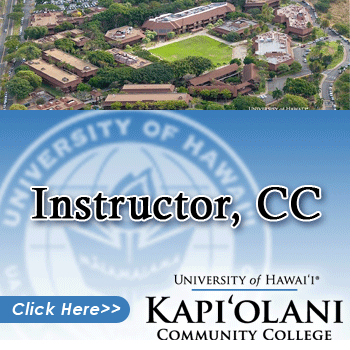
Instructor, Motorcycle Safety
Job Description
- Occupational Summary
The Motorcycle Safety Rider Instructor is responsible for supporting student success by creating an optimum learning environment, responding to student needs, managing effective instructional activities, modeling employability skills, demonstrating professionalism, developing cooperative work relationships with other faculty and staff, supporting college administrative requirements, and maintaining competency in their instructional field. He/she will be responsible for quality instruction and for effective participation and interest in the total affairs of the College.
- Essential Duties & Responsibilities
- Provides classroom instruction which prepares students for the DMV written test as well as the riding skills portion
- Make initial contact with students, email required documentation and instructions, and reply to student inquiries in a timely manner
- Ensure motorcycle range and motorcycles are prepared before class
- Maintain motorcycles by filling them up with gas, ordering parts to fix mechanical issues, and maintaining needed supplies including books, cards, and e-course codes
- Coordinate schedules with available Motorcycle Safety instructors to provide class coverage weekly and communicate with the Program Specialist
- Ensure instructors record attendance and enter grades within one week of the course
- Mail certificates and reports to the regional NC Motorcycle Safety Education Program and the national Motorcycle Safety Foundation
- Teaching a motorcycle safety course is physically demanding. It requires long hours, standing for extended periods of time, walking approximately 5 miles in the course of a day, Continuous bending and stooping to place cones, and sometimes the need to push inoperable motorcycles for distances up to a mile
- Minimum Qualifications
High School diploma or equivalent.
NC Motorcycle Safety Education Instructor Certification.
Licensed, experienced motorcycle operator with a minimum of 3 years riding experience.
Must be at least 21 years of age.
Driving record with no more than 3 moving violations, no alcohol related traffic violations, and no driver's license suspension, revocation, or denial within the three years preceding the date of application to become a coach.
Graduate of a Motorcycle Safety Foundation Course (BRC, or ERC)7.
Certified in basic first aid and CPR.
Preferred:
Previous Ridercoach experience in a community college setting.
- Knowledge, Skills and Abilities
Knowledge
- Knowledge of Motorcycle Safety Foundation MSF regulations, policies and procedures
- Knowledge of North Carolina motorcycle laws
- Knowledge of the subject and the appropriate educational credentials
- Knowledge of college policies and procedures
Skills
- Strong organizational, problem-solving and time management skills
- Instructs courses within the assigned program area and demonstrates high degree of skill in teaching; models effective teaching techniques for other faculty
- Monitors course offerings and makes recommendations to stay current; contributes in the development of course outlines and materials
- Interpersonal skills with proven ability to work in a team environment
- Demonstrates proficiency in a variety of Windows-based computer programs relative to performing responsibilities, including Microsoft Word Excel, and PowerPoint
- Demonstrates professional behavior that supports team efforts and enhances team behavior, performance, and productivity
Abilities
- Ability to work both independently and as part of a high performing team
- Ability to take initiative and perform with only general directions
- Ability to exercise sound judgment in making critical decisions
- Ability to develop objectives, evaluate effectiveness and assess needs
- Ability to utilize different instructional methods, strategies and technologies to meet diverse student needs
- Ability to deliver instruction in a variety of settings
- Ability to handle confidential information with absolute discretion
- Commitment to diversity, equity and inclusion; demonstrated ability to work effectively with a culturally diverse workforce, including those with different levels of academic preparation and varying physical and learning abilities, and socioeconomic levels
*Please mention you saw this ad on NativeAmericansInHigherEducation.*





